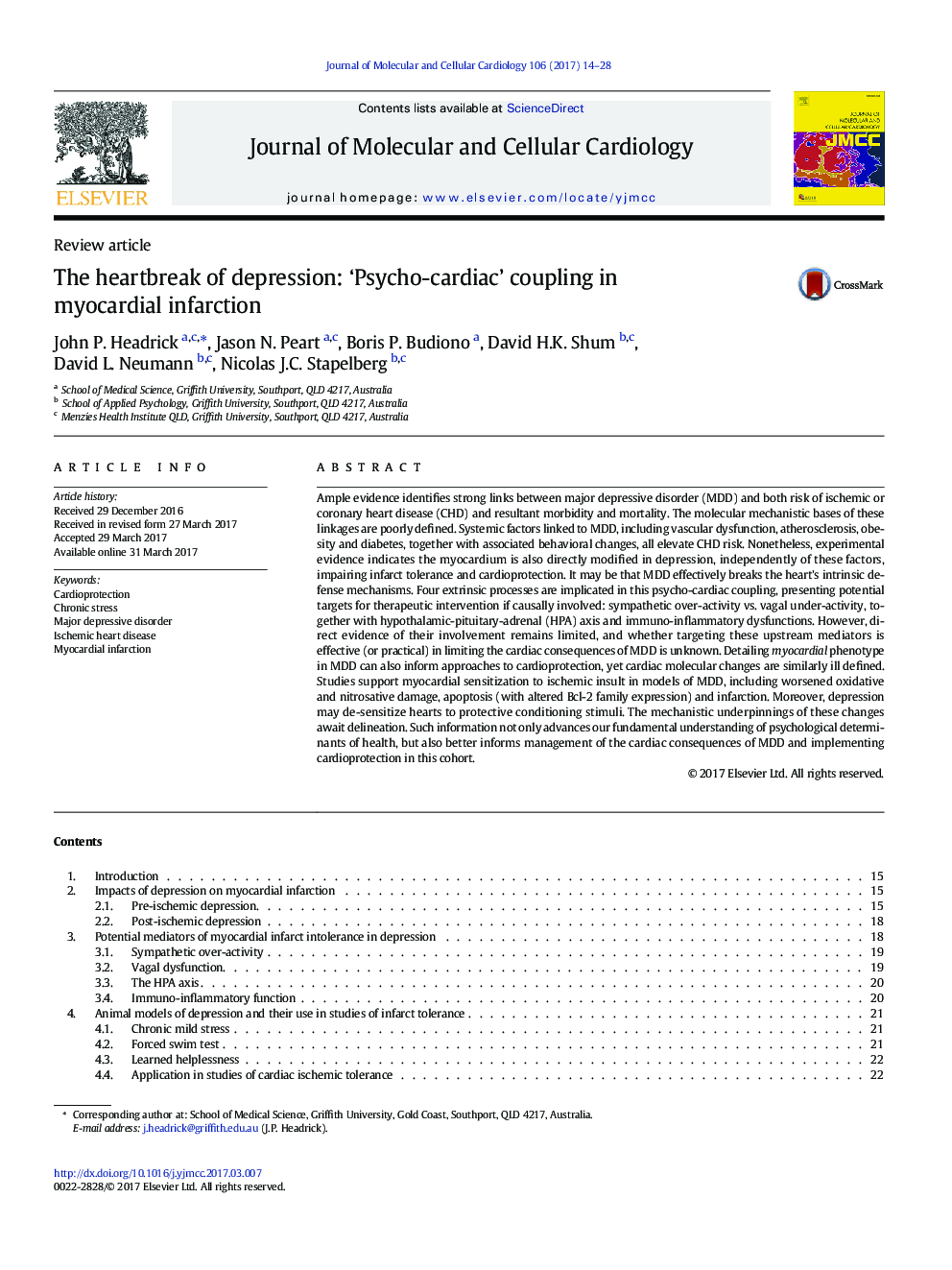| کد مقاله | کد نشریه | سال انتشار | مقاله انگلیسی | نسخه تمام متن |
|---|---|---|---|---|
| 5533551 | 1550400 | 2017 | 15 صفحه PDF | دانلود رایگان |
Highlight
- Depression worsens coronary heart disease risk and outcome via ill-defined mechanisms.
- Sympathovagal, HPA axis and immuno-inflammatory mechanisms are indirectly implicated.
- Cardiac apoptosis, infarction and oxido/nitrosative stress increase in stress models.
- Preliminary evidence also suggests inhibition of cardioprotective responses.
- Mechanistic studies of infarct intolerance across models of depression are warranted.
Ample evidence identifies strong links between major depressive disorder (MDD) and both risk of ischemic or coronary heart disease (CHD) and resultant morbidity and mortality. The molecular mechanistic bases of these linkages are poorly defined. Systemic factors linked to MDD, including vascular dysfunction, atherosclerosis, obesity and diabetes, together with associated behavioral changes, all elevate CHD risk. Nonetheless, experimental evidence indicates the myocardium is also directly modified in depression, independently of these factors, impairing infarct tolerance and cardioprotection. It may be that MDD effectively breaks the heart's intrinsic defense mechanisms. Four extrinsic processes are implicated in this psycho-cardiac coupling, presenting potential targets for therapeutic intervention if causally involved: sympathetic over-activity vs. vagal under-activity, together with hypothalamic-pituitary-adrenal (HPA) axis and immuno-inflammatory dysfunctions. However, direct evidence of their involvement remains limited, and whether targeting these upstream mediators is effective (or practical) in limiting the cardiac consequences of MDD is unknown. Detailing myocardial phenotype in MDD can also inform approaches to cardioprotection, yet cardiac molecular changes are similarly ill defined. Studies support myocardial sensitization to ischemic insult in models of MDD, including worsened oxidative and nitrosative damage, apoptosis (with altered Bcl-2 family expression) and infarction. Moreover, depression may de-sensitize hearts to protective conditioning stimuli. The mechanistic underpinnings of these changes await delineation. Such information not only advances our fundamental understanding of psychological determinants of health, but also better informs management of the cardiac consequences of MDD and implementing cardioprotection in this cohort.
Journal: Journal of Molecular and Cellular Cardiology - Volume 106, May 2017, Pages 14-28
